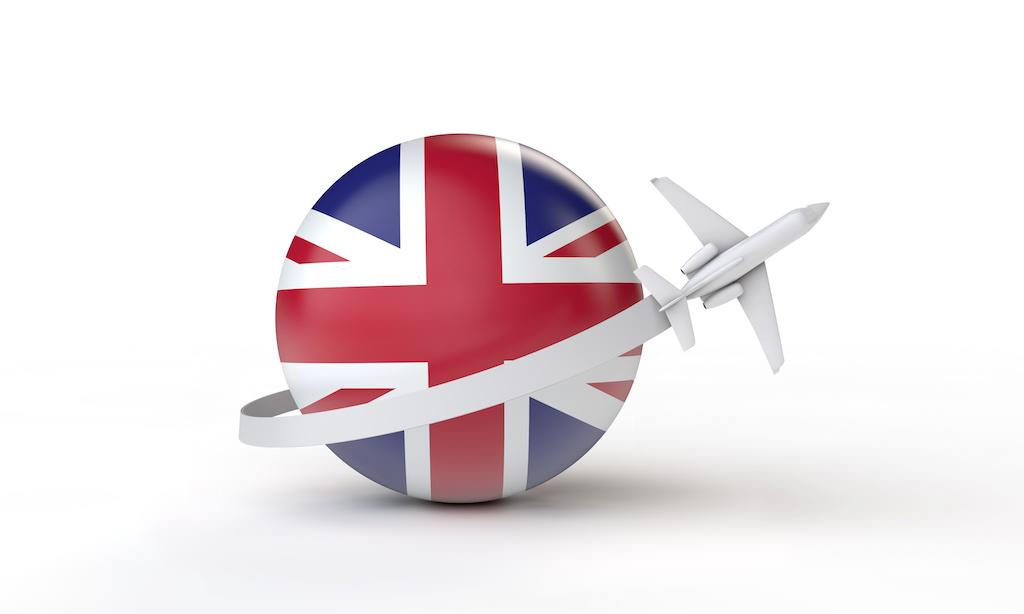
Since the referendum in 2016 that committed the UK to leave the European Union, the temptation has been to view Brexit as an event that will happen on a particular date. But, as the business aviation sector is finding out, Brexit is a process that will require ongoing work--and its effects will be felt for years.
After the UK formally left the continent-wide trading zone at the start of this year, carrying out ad hoc flights between the UK and the EU has become a much more bureaucratic process. From Jan. 1st, British providers of private air services have been required to register as third-country operators, and they have to obtain permission to operate each flight from the aviation authorities in the EU country they wished to fly in to. Similarly, EU-based operators wishing to fly into the UK had to apply for permission to do so from the UK's Civil Aviation Authority (CAA).
In a move that drew criticism from some UK-based air operator certificate (AOC) holders, the CAA offered block permits to EU operators. Under this system, once approved, the operator could fly in to and out of the UK as many times as they wished on a single permit. These block permits were limited in duration and were designed partly as a tool to help influence ongoing negotiations: the CAA made it clear that, once the initial tranche of permits expired at the end of March, replacements would only be issued to operators based in countries which offered similar terms to UK operators.
As late as March 22nd, the European Business Aviation Association (EBAA) was warning that only two nations--France and Italy--had agreed to offer reciprocal terms to UK operators. Pressure began to build, as EU-based operators with significant volumes of flights into and out of the UK lobbied their own regulators.
"We got on to our [EU-based] members and said, 'Listen: you're going to lose your block permit into the UK if your country doesn't give us a block permit back, so you'd better go and knock on their door,’" says Brian Humphries, a member of the board of the British Business and General Aviation Association (BBGA), a trade group. "One country described it as having woodpeckers at the door."
The gambit worked. On April 7, the CAA issued a list of countries with which it had agreed reciprocal block permits. This included 22 of the 27 EU states. Of the remaining five, three--Cyprus, Latvia and Lithuania--cannot reciprocate as they have no domestic operators who would apply for a UK block permit. Block permits are not available from Bulgaria and Croatia.
"The general feeling is this is really positive news," says Adam Twidell, co-founder and CEO of the app-based charter broker, PrivateFly. "This is pretty much open access to the majority of Europe. You can do anything apart from pick-up or drop-off in someone else's country."
However, the publication of the CAA's list does not mean that the issues are all fully resolved. There are limits to the size of aircraft covered by the block permits--usually 19 seats for passenger operations and 10,000-kg maximum take-off weight for cargo flights, although some nations impose tighter restrictions. The permits are presently valid for no longer than three months. And when a UK operator wishes to fly paying customers between two EU nations, the process of establishing what permission is needed is not uniform--in some cases such permits are proving impossible to obtain.
"At the moment, there is no provision for that flight to be approved," says Glenn Hogben, CEO of the Air Charter Association, a British trade group whose members include both UK- and EU-based business aviation brokers and operators. "It can be approved by the two countries involved by applying for permissions for that flight. There's nothing to say that it can't happen. But I know there are a number of occurrences where UK operators are trying to do those flights and are not getting permission."
Approval for such higher-freedom flights, in some countries, is contingent on that nation's operators not objecting to the flight. Twidell says a small number of operators in two nations--Sweden and France--are objecting whenever a permit is requested, meaning that UK AOC holders are effectively prohibited from flying into or out of either country to or from any destination within the EU. There is no obligation on the objecting operator to offer to fulfill the flight in question.





